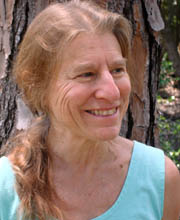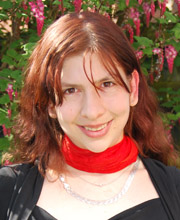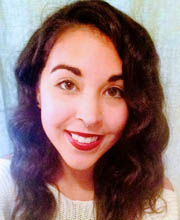Joan Michelson Wins The Bristol Poetry Prize
We are proud to announce the winners of the Bristol Poetry Prize.
Judge Penelope Shuttle said: I have, in addition to the three winners, named seven poems as Highly-Commended, and a further thirteen
as Commended. These poems formed the shortlist (along with the winners) of strong poems. The upper echelon of the poems, once I had
read through all the entries, were of a very high standard. So a very rewarding read. Thank you!
FIRST PRIZE: Stories by Joan Michelson
SECOND PRIZE: Rough Salvage by Bethany W Pope
THIRD PRIZE: That Childhood Street by Mallory Tater
Stories by Joan Michelson
 Originally from Boston, Massachusetts, Joan has been Head of Creative Writing and Holocaust
Originally from Boston, Massachusetts, Joan has been Head of Creative Writing and Holocaust
Literature at the University of Wolverhampton and lecturer in Creative Writing and Poetry at
Birkbeck College, University of London. She is currently directing story-telling and book-making
workshops in North London schools and poetry workshops in the community.
Her poems, fiction and essays have been published in British Council anthologies, New Writing
Magazine and numerous other magazines and anthologies in the USA and UK and her poem
Moslem Girl (retitled Bosnian Girl) won the Poetry Society's Hamish Canham Prize in 2012.
Joan’s publications include: Toward the Heliopause (Poetic Matrix Publishers, USA, 2011).
Stories
It was always the 1920s, the place, the Jewish ghetto
around Blue Hill Avenue, a school day inevitably
without weather, or season, or other young children.
My father, who was the story-teller and hero,
his own Pinocchio, was six years old.
He had a special costume, his mother’s clothes.
He wore her cloche, her red fox fur with paws
and hanging from his shoulder, her shiny bag.
Like Pinocchio, my father forgot to go to school.
He wandered to the harbour and to L-Street Beach,
which had a fence of board and kept the women
separate from the men. Through a crack,
he watched his mother with her ‘yenta’ friends,
which meant ‘talkers’. ‘gnoshing’, which meant eating,
and sticking out their legs. His sisters, old enough
to be his mother, worked in Downtown Boston.
His brothers, old enough to be his father,
attended College. He hardly saw them. His friend
was the police. They had him sharpen pencils and draw
picture-stories until his sisters could collect him.
Or, as happened sometimes, his mother,
always crazy worried. For the telling,
my father kept changing roles. He was Emma Micey,
the little boy, the policemen, and his mother.
His voice rose high for her distress.
‘My little boy is lost. I need help.
For the policeman, my father’s voice was gruff.
‘Certainly, Madame Mother, we will do our best.’
The horror was that she didn’t recognise
her little boy. He had to throw his costume off
and throw his arms around himself and cry
in child-voice, ‘Mummy, I’m right here.’
I can’t remember if, hearing this,
we laughed or cried or, if frightened
but in on all and knowing,
we were consoled and we stayed silent.
At my father’s funeral I told the stories
I remembered and the family laughed.
ii
Again my father talked about the 1920s
but I heard this story in 2000.
I’d flown in from London for his birthday.
Woken early, I thought, ‘We should see the ocean.’
It was a journey, by bus, subway, commuter rail.
We emerged at Lynn high-platform station,
From there we walked down many flights of steps,
and through seemingly neglected streets
of shops and houses stuck in time and aging
towards collapse. My father kept us going.
I thought we’d make it to the stony inlet
at the tip of the Nahant peninsula
where he used to take us. I thought he thought it
and could make the distance. But he stopped us
on a beachside bench at the neck.
Perhaps I knew the story, only this time
I felt it differently. Beneath his words
I saw the child, delivered to his uncle
for the summer, wandering here alone
inside the man who leaned his weight
against me and felt heavy. I wanted us to face
the open ocean this time too, to climb
the heaped up boulders as we could, and dip,
or dive into the rollers that brought England
closer and had been a bridge between us,
as he had written long ago, at peace
with distance. I shifted to ease my shoulder
and felt his loss and longing. In time
a policeman stopped. In the official car
my father came alive. He remembered
his childhood story teller self, his own
Pinocchio who so relished his adventures,
he forgot to go to school. Lost again
and found, he spent hours as a helper
to the police. By evening, our day was cast
as great adventure. He’d seen England
across the water and met a young man
so courteous he drove us to our train.
Rough Salvage by Bethany W Pope

Bethany is an LBA winning author, a finalist for Ink, Sweat and Tears poetry commission and she was recently
highly commended in the Poetry London Competition. She has been published in many magazines and her work
is due to appear in the following anthologies:The Poet’s Quest for God (Eyewear), Gothic Anthology (Parthian
Books), andRaving Beauties (Bloodaxe Books).
Publications include: A Radiance (Cultured Llama, 2012); Crown of Thorns (Oneiros Books, 2013);The Gospel of
Flies (Writing Knights Press 2014); Undisturbed Circles (Lapwing, 2014).
Rough Salvage1
The day I found the eagle in the trash,
(hard cold brass that glittered in the gutter) treasure
enough for a little girl, I dragged it home and kept
the thing above my bed. What once was lost
had finally been found.
It gave me something I was happy to take.
Nearly a year later, it had been taken.
Grinning, my mother returned it as trash.
She'd painted it pink. Trimmed its wings. The found,
wild creature was dead. It wasn't my treasure.
Eventually, I brought home other lost,
lovely things: a fox-faced Indonesian kite I kept
on my bookcase. My father threw it out when I kept
setting the thermostat lower, so I could take
enough sleep. The pine-cask that looked like a lost
diamond hutch. The doll with human hair, stuck in the trash.
Each discovery, I hoarded, secretly treasured.
Finally, my parents found
I was too much, had too much, for them. I found
new hiding places. In trees my grandfather kept
excising from the yard, though they bled sap; gold treasure.
Under our neighbour's deck, where I took
stock of the horse-teeth I sifted from the sand. 'Trash,
a lot of garbage,' Mom said, 'better off lost.'
Spot, the stuffed dog whose tail I chewed on, lost,
my father said, while I was seeing the shrink. I found,
under the bed, a pamphlet for the orphanage. Trash
can tell you a lot about yourself. I kept
hold of nothing. My hair was shaved, my clothes taken,
a new mother locked me up, like treasure,
stuck in the shed. Even there, I found treasure
on the floor, by the water-heater. A few lost,
undernourished kittens to play with. Later, they were taken,
reduced to gristle by a boy I knew. I found
greasy tufts of fur and some clumps of wet skin. I kept
interesting fragments of bones, to save from the trash.
Find a new hoard. Treasures can be found anywhere.
They are always lost. The world is a rich trash-heap.
Secrets can be kept for years.
1 This is an acrostic-sestina. The acrostic reads, ‘The things we lose define us as much as our gifts.’
That Childhood Street by Mallory Tater

Mallory Tater is from Ottawa, Canada and it is studying on the Masters of Fine Arts programme at University
of British Columbia. Her poetry and fiction have been published in Bywords Journal, Island Writer Magazine,
The Danforth Review, and PRISM International.
She has work slated to be published in both Descant and CV2 this year.
----------------------------------------------------------------------
HIGHLY-COMMENDED: (in no particular order)
Selkie by Ben Johnson – Barton-on-Sea, Hampshire
Waiting for the Doctor by David C Johnson - Bristol
Long Ship by Tomas de Faoite – Breda, Netherlands
Your Hair by James Edwards - Bristol
Subliminal by Ama Bolton - Wells
Real at Last by Jean Atkin - Shropshire
Ruskin’s Contract by Geraldine Clarkson – Leamington Spa
COMMENDED: (in no particular order)
Self-Portrait in the Body of a Dolmen by Claire Trevien - Oxford
Sissy in Madeira by Kay Suzanne Cotton – Villebauden, France
Stockholm by Natalya Anderson - Cambridge
The Dunes by Rachel Plummer - Edinburgh
The Difference by Geraldine Clarkson – Leamington Spa
Under by Geraldine Clarkson – Leamington Spa
Port Charles 15th May. 3.00pm. Last hour of the incoming tide. by Chris Hagen - Bristol
Shadow by Ann Drysdale – Blaina, Gwent
The by Tony D'Arpino - Bristol
My Father’s Bear by Sara Watkinson – Woodstock, Oxon
Dinner Party by Natalya Anderson - Cambridge
Goldfish on the Coast by Roz Goddard – West Midlands
Grace Poole Fits a Toile for Bertha by Pippa Little – Cramlington, Northumberland














































